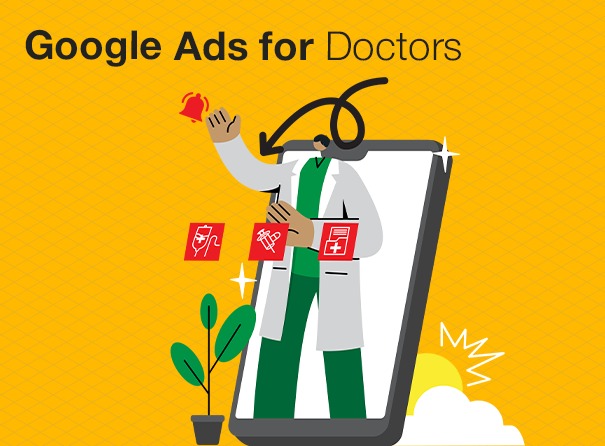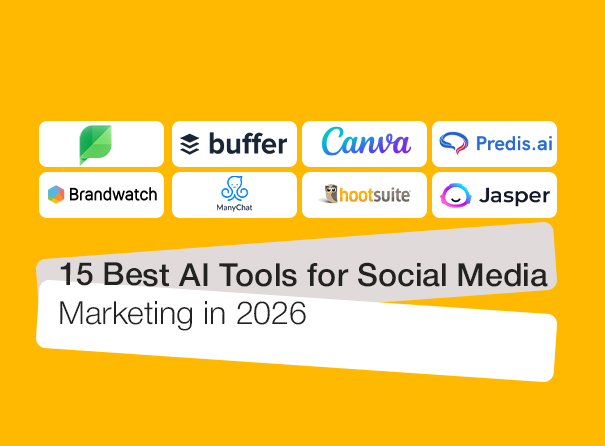TL; DR: - Google Ads for doctors are among the quickest methods to reach high-intent patients who are actively looking for healthcare solutions. Unlike SEO, which is a time-consuming process, PPC provides real-time visibility for terms such as "pediatrician near me" or "emergency care open now." By using local, intent-based keywords, crafting empathetic ad copy, building compliant landing pages, and applying ad extensions, physicians can drive appointment bookings while complying with HIPAA and Google's health care advertising policies. With ongoing monitoring, A/B testing, Local Ads and PPC integration, and medical practices can experience steady patient increase and increased ROI.
Introduction
Be honest—when was the last time someone went through a phone book to locate a doctor? Nowadays, patients go directly to Google. They're typing in queries like "emergency care open now" or "pediatrician near me," and they want immediate results. That's where Google Ads enter the picture. Imagine it like the express lane to getting in front of patients at the very moment they are looking for you. No waiting for months for SEO to take effect; PPC puts your practice on the map instantly and in direct contact with high-intent patients who are ready to schedule an appointment.
Healthcare advertising is not as easy, though. Doctors are required to adhere to HIPAA compliance guidelines, rigid Google Ads healthcare regulations, and ethical standards while competing with neighboring practices. That's where having a well-defined PPC strategy comes in. At Inqnest, we assist practices in cutting through the clutter with campaigns that achieve compliance needs while ensuring the highest ROI. If you’re considering PPC for your practice, our Paid Advertising Services are built to help doctors attract patients faster without trial and error.
Why Doctors must invest in Google Ads?
Doctors wonder why PPC is worth it when they're already spending money on SEO or word of mouth. The reason is patient behavior. Patients looking online for medical services tend to be in need quickly and willing to act. A patient who searches "emergency care near me" isn't browsing casually—they're selecting which doctor to call within minutes. Google Ads enables practices to pick up high-intent patients immediately.
Compared to older forms of advertising such as newspaper ads or billboards, PPC is also affordable and measurable. Doctors can reach only the patients they need—by location, service, or demographics—and get to see directly how many clicks, calls, or appointments came from those ads. Immediate visibility is another benefit. SEO takes months to rank, while PPC campaigns can be up and running and producing leads in days. Finally, service-specific targeting ensures you’re not just promoting your clinic in general but focusing on high-value treatments such as dermatology procedures, chiropractic care, or cosmetic services.
For instance, take Water's Edge Dermatology, a Florida chain with 60+ offices. It experienced a 159% year-over-year spike in conversions and a 31% reduction in cost per acquisition after it optimized its landing pages, ad copy, and user experience. That's the beauty of medical PPC advertising—rapid, scalable, measurable growth off the backs of patient need.
Key PPC Tactics for Medical Practitioners
- Prioritize High-Intent and Local Keywords: - The key to a successful healthcare PPC campaign is keyword targeting. Patients do not often search generically; they seek out specific doctors and treatments in their area. What that means is that local PPC for healthcare needs to target both geography and intent. Phrases such as "family doctor in Austin," "dental care near me," or "best chiropractor for back pain in Houston" attract exactly the type of patients who are in buying mode. Adding long-tail keywords is also crucial. Rather than simply bidding on "dermatologist," practices need to bid on terms like "acne treatment in Dallas" or "skin specialist for eczema near Chicago." Negative keywords must also be used to filter out irrelevant clicks from phrases like "free clinic," "symptoms," or "medical jobs." This keeps money only spent on patients who are actively seeking treatment.
- Create Patient-Centric Ad Copy: - Once you’ve targeted the right keywords, the next step is writing an ad copy that connects with patients. In healthcare, patients value empathy and clarity over flashy marketing language. Ads should avoid jargon and instead use simple phrases like “therapy for anxiety” instead of “CBT.” Emphasizing expertise is also important. Mentioning years of experience, board certifications, or awards assures patients that they're in good hands with a qualified doctor. Benefits need to be explicitly declared—such as "same-day appointments," "compassionate team," or "personalized care." Most importantly, all ads need to have a strong call-to-action (CTA). Calls to action such as "Book Appointment Today" or "Call Now for Same-Day Availability" lead patients to take action now.
- Build High-Converting Landing Pages: - Getting a click is only the start. The landing page is where patients make the decision to book. To effectively convert, the landing page must mirror the ad to perfection. If the ad is on laser hair removal, the page should be for that procedure—not the generic homepage. Trust-building factors such as patient reviews, certifications, or five-star ratings must be prominently featured. Mobile optimization is a must because most healthcare searches are done on smartphones. Lastly, the conversion process should be seamless with phone numbers and booking forms visible above the fold. For urgent care services, call-only ads are particularly effective because they allow patients to connect instantly.
- Use Ad Extensions: - Ad extensions are a simple but effective means of making your ads more clickable. Doctors can benefit from call extensions that enable patients to call directly from the ad, which is essential for emergency situations. Location extensions display your practice location and integrate into Google Maps so nearby patients can find you. Sitelink extensions can directly link to specific sections such as "Meet the Doctor," "Our Services," or "Contact Us." Not only do these additions increase visibility, but they also establish trust before the patient clicks.
- Prioritize Compliance and Privacy: - Healthcare advertising is more regulated than most other industries. Doctors must prioritize compliance above everything to prevent violations. Personal health information or exaggerated promises such as "100% guaranteed cure" should never be included in ads. Google also makes healthcare advertisers go through verification so that only qualified providers are allowed to run ads. Landing pages are monitored as well. They need to mirror the ad copy and have disclaimers, particularly for treatments such as cosmetic treatments. Other than penalty evasion, compliance builds patient trust, which is priceless for long-term growth.
- Track, Analyze, and Continuously Optimize: - Google Ads for Doctors isn't a one-time project—it's a continuous process. Monitoring key metrics such as click-through rate (CTR), cost-per-click (CPC), cost-per-acquisition (CPA), and appointment bookings allows to identify what works and what needs tweaking. A/B testing is essential to enhance performance. By testing different headlines, CTAs, or landing page layouts, practices can identify the combinations that generate the most bookings. Adjusting bidding strategy by location, device, or time of day also maximizes efficiency. To learn more about optimization strategies, read our guide to PPC Campaign Optimization Strategies.
Do's and Don'ts of Google Ads for Doctors
Even the finest campaigns will go to waste without discipline. Here are some golden rules of healthcare PPC:
Do's
- Utilize geo-targeting for targeted audiences.
- Maintain ad words empathetic and concise.
- Regularly monitor campaigns for compliance.
- Opt for mobile-friendly landing pages.
Don'ts
- Don't make guaranteed promises.
- Don't retarget sensitive health-related diseases.
- Don't spend budget on useless clicks by neglecting negative keywords.
- Don't drive ad traffic to generic homepages—service-specific pages are more effective.
These medical PPC best practices can save practices thousands of dollars and enhance patient acquisition.
Legal and Ethical Implications in Healthcare PPC
Healthcare ads are required to adhere to strict legal and ethical principles, unlike retail advertising.
- HIPAA compliance: Never target or share using PHI.
- Google limitations: Health-related retargeting is restricted for privacy protection.
- Disclaimers: Always use where needed, particularly for treatments such as cosmetic surgery.
- Transparent claims: Stick to facts—patients appreciate honesty over fancy promises.
For U.S.-based Doctors, compliance is not a matter of choice—it's a matter of upholding patient trust and sustaining campaigns.
Google Local Ads vs Google Ads: Which Works Better for Doctors?
One thing that doctors usually inquire about is whether Google Local Ads or regular Google Ads work better. The truth is that both have different but complementary functions. Google Local Ads are displayed directly on Maps and work best to catch nearby patients searching for "dentist near me" or "ortho near me." Google Local Ads drive walk-ins and calls for urgent needs.
Google Ads, on the other hand, dominate search results and give practices visibility for competitive services like dermatology, orthodontics, or chiropractic care. Using both ensures maximum visibility across patient journeys.
For instance, Upperline Health, a multi-center chiropody and wound care provider, operated both Google Local Service Ads and standard Google Ads together. Using the combination of both, there was a 60% increase in new patient referrals, which increased online appointment requests and drove higher in-clinic visits. If you’re looking for options, our guide on Google Local Ads vs Google Ads explains how to choose what works best for your clinic.
Conclusion
In the modern healthcare landscape, Google Ads is among the quickest, most reliable means of gaining new patients . By targeting local and high-intent keywords, making empathetic ad copy, creating high-converting landing pages, and remaining compliant with HIPAA and Google guidelines, medical practices can establish a reliable stream of patients.
At Inqnest, we’ve seen firsthand how well-structured healthcare PPC campaigns transform practices—helping doctors not only fill their schedules but also build trust in their communities. The key is combining compliance with creativity and continuous optimization.
If you’re ready to expand your practice, now is the time to invest in PPC. Partner with Inqnest today and let’s build a Google Ads strategy that attracts more patients, drives measurable growth, and keeps your practice ahead of the curve.











.png)









.jpg)


.png)
.png)
.png)

.png)
